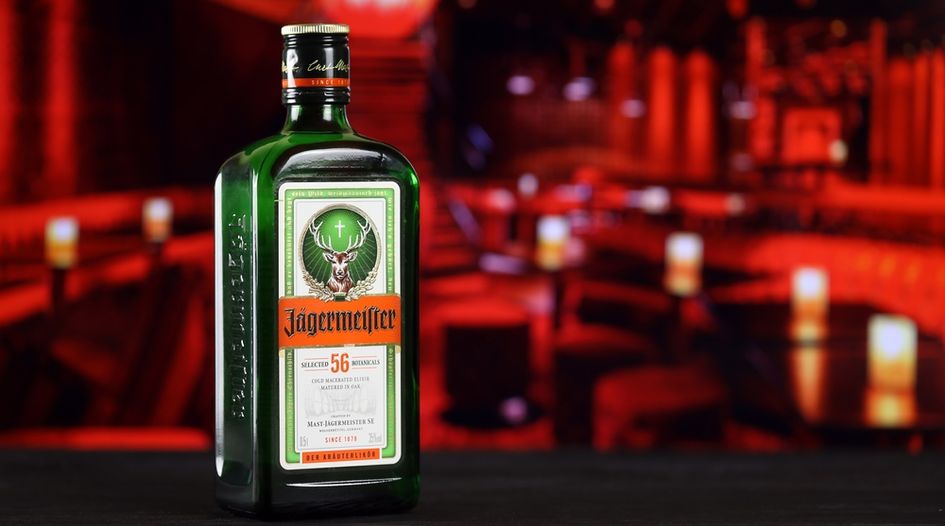Tenth Circuit rules no likelihood of confusion in Jägermeister dispute

The US Court of Appeals for the Tenth Circuit has concluded that no reasonable juror would confuse an alcohol distributer’s use of the word ‘kühl’ with use of a similar mark by a clothing company. The case addressed unfair competition claims under the Lanham Act (Alfwear Inc v Mast-Jägermeister US Inc, Case 21/4029, 7 September 2023, Holmes, Kelly, Carson, JJ).
Case background
Alfwear has used the mark KÜHL on its outdoor apparel line since 1993 and has registered the mark in connection with apparel, wine and beer. Mast-Jägermeister US (MJUS), a German herbal liqueur distributor, began incorporating ‘kühl’ into its advertisements on billboards and digital advertising with phrases such as ‘kühl as ice’ and ‘drink it ice kühl’. In response, Alfwear filed suit against MJUS, asserting trademark infringement and unfair competition. The district court granted MJUS’s motion for summary judgment, finding that there was no likelihood of confusion because all but one factor for assessing the likelihood of confusion supported MJUS. Alfwear appealed.
Criteria
Alfwear argued that the district court erred in concluding that MJUS’s use of the word ‘kühl’ was unlikely to cause confusion with Alfwear’s use of the same word. To determine whether a likelihood of confusion exists, a court must consider the following factors:
- the degree of similarity between the marks;
- the intent of the alleged infringer in adopting the mark;
- evidence of actual confusion;
- the similarity of the products and manner of marketing;
- the degree of care likely to be exercised by purchasers; and
- the strength or weakness of the marks.
Court decisions
The Tenth Circuit found that the two marks were not similar in sound, meaning or appearance, and that MJUS only used ‘kühl’ in association awith its other marks. The court explained that Alfwear often depicts the KÜHL mark alongside a logo of a shield-type shape, containing a stylised, snow-covered mountain peak in the colours brown, black and white against a bright blue sky. In contrast, MJUS uses the word ‘kühl’ in phrases such as ‘kühl shots’ or ‘kühl as ice’, on top of a black or green background and accompanied by a combination of either the JÄGERMEISTER mark, the Jägermeister logo or images of a Jägermeister bottle.
Further, the court explained that MJUS did not intend to copy Alfwear’s mark, finding that MJUS was unaware of Alfwear’s trademark when it designed its new advertising campaign. The Tenth Circuit also noted that when MJUS became aware of the trademark, it intended to avoid infringement by refraining from placing the mark on its apparel or liquor products.
The court also determined that there was insufficient evidence of actual confusion. Alfwear presented anecdotal evidence from its executives who had heard about the confusion from individuals, alongside survey evidence, the latter demonstrating that consumers experienced an approximately 30% chance of confusion. Despite this, the court found that the anecdotal evidence was de minimis and that the survey was poorly designed; the products were not shown to participants as they would appear in the marketplace, and leading questions were used.
Key takeaways
Crucially, the court found that the two products were not similar. Consumers exercised a higher degree of care when purchasing Alfwear’s expensive apparel products as opposed to MJUS’s alcohol products. This meant that the KÜHL mark was commercially weak, as it did not draw a connection in the mind of the consumer from the mark to the product. Thus, the Tenth Circuit affirmed the district court’s finding of summary judgment.
WTR recommends
JEEP owner unsuccessful in opposition against JEIP321 in Class 12
Are GRILLOUMI and HALLOUMI confusingly similar?
Grubhub relishes victory against preliminary injunction
This is an Insight article, written by a selected partner as part of WTR's co-published content. Read more on Insight
Copyright © Law Business ResearchCompany Number: 03281866 VAT: GB 160 7529 10

